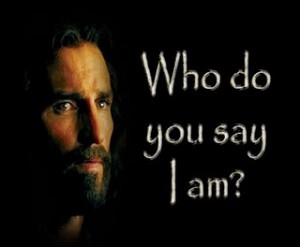 But you, who do you say I am? (Mt 16:13-20)
But you, who do you say I am? (Mt 16:13-20)
In my mother tongue – Tamil, while speaking about great people, speakers and writers often refer to: “the Buddha, Jesus and Gandhi”. These three persons are mentioned as a matter of fact in the same breath. We Christians may feel proud that even non-Christians refer to Jesus as a great man. Looking at it at a deeper level, we may realise that this expression does not reflect our own experience of Jesus. Who is Jesus for you? Is he merely a great man? The gospel text of today once again invites us to reflect on this question. Let us explore three possible implications of this event described in the gospel narration of today, and in so doing we might understand what it could mean for us today.
Possible Significance for Jesus: Increasing self-knowledge. We humans come to realise who we are in our interaction with other people. Direct verbal feedback is one way we learn about ourselves from others. From his baptism up until his resurrection, there were several high points on Jesus’ journey of self-discovery: the temptations, the encounter with the Canaanite woman (the gospel reading of last Sunday), the transfiguration, the agony in the garden. Surely, the incident of Caesarea Philippi is one such milestone. However, Peter’s statement: “You are the Christ, the Son of the living God”, is one step too far! Christ, that is the Messiah, was not expected to be the Son of the God – having the same nature with God. (Interestingly, in Mk and Lk the 2nd part of Peter’s statement does not feature!) Did this surprise Jesus himself?
Significance for the Apostles: To know and love him more intimately. The event described in the gospel of today was also an invitation to the disciples to deepen and personalise their own understanding of Jesus. It is also an invitation to you and me. Archbishop Oscar Romero of El Salvador is reported to have said: “Christianity is not a collection of truths to be believed or laws to be obeyed. Rather, Christianity is a person. Christianity is Christ.” This intimate and personal knowing of Jesus is not merely an intellectual or rational activity, but an experience that is mediated by the Spirit of God Himself: “Simon son of Jonah… it was no human agency that revealed this to you but my Father in heaven” (Mt 16:17).
Significance for Peter: To follow him more closely. The location for the event described in the gospel text of today is Caesarea Philippi. The non-Jewish location would have been selected by Jesus just for the sake of seclusion. And the mountainous setting could also suggest a location for an encounter between God and Humans. Interestingly, Caesarea Philippi was also known for a temple dedicated to the Greek god Pan, who was the god of shepherds. This geographical context reminds us of John 21:15-19, which could be considered the Johannine parallel to the synoptic version of the gospel reading of today (Mt 16:13-20; Mk 8:27-30; Lk 9:18-21). In John, Jesus wants to be sure of Peter’s love and not just his understanding of Jesus as the ‘Son of God’. Built on this personal relationship with Jesus, Peter’s own leadership would consist in shepherding.
Today, Jesus invites us to love him as the Son of God – even enabled by the Spirit – and be shepherds to each other.